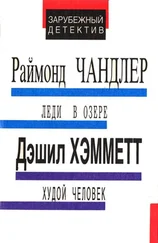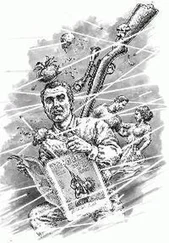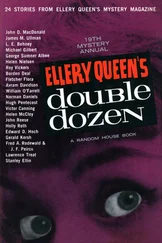Аврам Дэвидсон - Peregrine - primus
Здесь есть возможность читать онлайн «Аврам Дэвидсон - Peregrine - primus» весь текст электронной книги совершенно бесплатно (целиком полную версию без сокращений). В некоторых случаях можно слушать аудио, скачать через торрент в формате fb2 и присутствует краткое содержание. Год выпуска: 1971, ISBN: 1971, Издательство: New York : Walker, Жанр: sf_all, на английском языке. Описание произведения, (предисловие) а так же отзывы посетителей доступны на портале библиотеки ЛибКат.
- Название:Peregrine : primus
- Автор:
- Издательство:New York : Walker
- Жанр:
- Год:1971
- ISBN:0802755461
- Рейтинг книги:5 / 5. Голосов: 1
-
Избранное:Добавить в избранное
- Отзывы:
-
Ваша оценка:
- 100
- 1
- 2
- 3
- 4
- 5
Peregrine : primus: краткое содержание, описание и аннотация
Предлагаем к чтению аннотацию, описание, краткое содержание или предисловие (зависит от того, что написал сам автор книги «Peregrine : primus»). Если вы не нашли необходимую информацию о книге — напишите в комментариях, мы постараемся отыскать её.
Peregrine : primus — читать онлайн бесплатно полную книгу (весь текст) целиком
Ниже представлен текст книги, разбитый по страницам. Система сохранения места последней прочитанной страницы, позволяет с удобством читать онлайн бесплатно книгу «Peregrine : primus», без необходимости каждый раз заново искать на чём Вы остановились. Поставьте закладку, и сможете в любой момент перейти на страницу, на которой закончили чтение.
Интервал:
Закладка:
“Dwarfs I don’t supply,” he added, as though wearily struck by an afterthought.
Negotiations were commenced for an allegedly damascene blade allegedly owned by an elderly aedile who was guaranteed to have worn it only for triumphs, and the Cappadocian, as though honor bound, engaged in a great deal of bargaining. But Ulrich, after having indifferently come down a gold piece, merely yawned and gazed at them all through his heavy-lidded eyes; so that Peregrine, in whose opinion the blade was well worth the price, abruptly terminated the cheapening.
“A sensible young fellow,” said Ulrich. “A receipt you wouldn’t need. My word is my receipt.”
“I don’t want a receipt,” said Peregrine. “All 1 want is, for good measure, and to seal the bargain, that you throw in a
AVRAM DAVIDSON
l 65 ]
broken sword because whilst my funds are limited, your account has piqued my interest.”
Ulrich nodded the nods of the long-suffering. “ ‘Piqued his interest,’ he says. Some got the name, whereas others play the game. All right, goatling. Take your pique of the gebrokeners. No limit on the number of pieces, all I ask and expect is that when laid out before me they should form a recognizable pattern of a sword of normal length and normal breadth.”
Appledore, meanwhile, had made himself free of some tattered codices, and Claud was contemplating a cutlass which Peregrine expected shortly to be asked to buy; so he found himself quite alone as he surveyed the pile of broken swords, though aware from time to time of the dealer’s expressionless countenance peering out from the window in his office-shed. Most of the broken blades were just so much old iron. Here and there a fragment of what looked like a good blade appeared, but almost never could he discern enough other fragments to make it appear worth the efforts of even the cheapest dwarf. And then something seemed to flash at him, then was gone as he moved toward the place whence it had twinkled.
With hands and feet alike he turned and tugged at aged weapons which had shed man’s blood in the four corners of the old earth, then, without his being aware of even touching it, a hilt seemed simply to roll at his feet. And flashed. It was broken. That was to be expected. But he observed, even before his fingers reached it as he stooped, that the design on it represented two serpents copulating, and in the corner of one empty eye-socket he saw a tiny fragment of a shattered gem-stone. And this had been, doubtless, what had flashed at him. Thoughtfully, he picked it up. And thoughtfully he recommenced his search.
“Found what you want? or think you want?” asked Ulrich.
Peregrine set down the broken bits in the rough semblance of a sword. “All right,” said the dealer. “But it’ll never fly. Close the gates as you go out, please, the element they got coming to this neighborhood nowadays—Goths, Avars, Scythians—even a broken sword wouldn’t be safe pretty soon.”
The cutlass changed hands, and this time the loose pages of the codex, no even partially entire original being found, were thrown in for good measure. “I thought to beguile my spare moments by attempting to riddle them,” was Ulrich’s only com
ment as he acceded to Appledore’s request. “But what spare moments, where spare moments? Listen, you think I lick honey in this rotten business?”
The Cappadocian suddenly remembering something left behind at the metallurgical-remnants dealer’s—“A trifle, not worth your return, I shall meet you farther on, or assuredly at the inn if not, hard by the side of the Imperial Treasury,” he said —the three were quite alone in the quiet street when Peregrine showed them the hilt of the broken sword more closely and with an air quite different from that assumed when at the scrap-yard. “What think you?” he asked.
“This is assuredly,” the sage mage began.
“Enough of your assured uncertainties,” said Claud, who had even stopped swishing his cutlass proudly, for all the world a boy with a new toy. “The only assuredly is that ’twas this same design as was upon the case wherein lay the crown discovered in the dragon cave, is all. Conceal it, master deary, do!” And so, Appledore rapidly bobbing his head up and down in agreement, this Peregrine made haste to accomplish.
“However,” said the older man, “I perceive a certain intimation that I don’t know my business, merely because I displayed a certain latitude of opinion in regard to the provenance of the crown—and a good fortune to all of us that the Nomenclature of the commissary-major mentioned neither pods of musk nor measures of barley-meal, Caesar’s men being fed never on any grain but wheat; else we had not retained that sack which contained the crown as well . . . where was I? I ’gin to dither, me think me. Ah!”
They had passed out into a sort of square fairly full of people making their way, or simply sitting in the sun. Appledore accosted one of the latter, and, as though picking up the thread of an interrupted conversation, he said, “And you were telling me that the abominable heresy termed Ophiolatry was quite put down in this city—”
“I was not!” the citizen exclaimed. “Just because there haven’t been any prosecutions for it of late? Wait till this new government gets settled in; then you’ll see!”
“I shall? We shall, I mean. Excellent. Ah, young fellows, can you direct me—” and he pattered along with his two companions as though he had never seen them before; then, ap
AVRAM DAVIDSON
[ 67 ]
proaching someone even older than himself, and slow of step, declared, “Man back there was saying there’ll be some prosecutions soon for Ophiolatry, he says, Eh?”
The oldster displayed his withered gums. “Shouldn’t be surprised one bit,” he affirmed. “Had some cases of it not a lustrum ago. Or was it a double-decade? Memory’s not what it was, y’see, I was born the year the plague struck Ravenna, and—”
“You are right, you are right!” Appledore exclaimed. “It was Ravenna, not Vienna.” And he threw a look both inane and triumphant upon Claud and Peregrine, and they all stepped briskly along. "Now let’s see,” Appledore muttered, under his breath.
Coming towards them was a slightly seedy, slightly furtive man with the look of an unfrocked anchorite. To him Appledore said, “Is it true, Citizen of this City, that, despite the prosecutions of not a lustrum, or was it a double-decade ago, the curious cult called Ophiolatry still survives herein?”
The man leapt as though stung by a vengeful bee, and his chops flapped as he declared, “It is false, sir! I assure you, entirely false! No such traces continue, and those few survivors have all recanted and become as staunch in the Faith as . . .” His voice ran down, and he gazed at Appledore, and then at Peregrine and at Claud. “Why do you ask?” he inquired, low-voiced.
“Hem,” said Appledore. “We are strangers, travellers from an antique land. There are a one or two things which we might like to discuss with you, an you could spare us the time. Whither is your dwelling-place?”
His dwelling-place was on the other side of Tannery Row, a foul-smelling area of open vats and sheds where hides lay stinking in pickle, or were turned in tubs with doves’ dung, or stretched on fleshing boards to be scraped with special knives. After passing through with open mouths, less from astonishment than from fear of smelling more of the stench than they could safely hope to endure, the travellers found themselves in some open fields of fairly wide extent; at the end of this a lane bordered with old and massive trees, some stooping from very age; and along this way, behind a wall, through a court, and alongside a wool warehouse, was the dwelling-place of Eugenius the Eddessan, their guide and host.
Читать дальшеИнтервал:
Закладка:
Похожие книги на «Peregrine : primus»
Представляем Вашему вниманию похожие книги на «Peregrine : primus» списком для выбора. Мы отобрали схожую по названию и смыслу литературу в надежде предоставить читателям больше вариантов отыскать новые, интересные, ещё непрочитанные произведения.
Обсуждение, отзывы о книге «Peregrine : primus» и просто собственные мнения читателей. Оставьте ваши комментарии, напишите, что Вы думаете о произведении, его смысле или главных героях. Укажите что конкретно понравилось, а что нет, и почему Вы так считаете.






